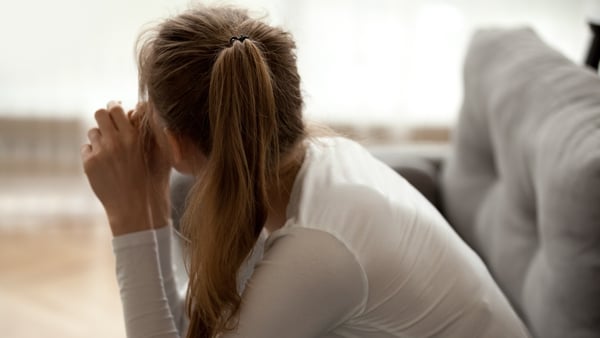Software to protect children from cyberbullying, a wearable device to diagnose Parkinson's Disease and educational tools for literacy were among the winners of this year's AI Awards.
Other winning entries included projects focussing on areas such as noise pollution, electric vehicle charging stations and lip movements.
The awards are organised by the not-for-profit group AI Ireland and are designed to support the growth and development of data science, machine learning and artificial intelligence in Ireland.
"I am deeply impressed by this year's finalists, who highlight AI's transformative power in various sectors," said AI Ireland chief executive Mark Kelly.
"Their innovations range from protecting young people online to pioneering ethical AI in education and streamlining processes in large enterprises.
"Notable achievements include advancements in explainable AI, promoting transparency and trust, and significant strides in child safety software," Mr Kelly said.
Since its inception five years ago, Microsoft has sponsored the AI Awards.
"Right now, we are entering 'the era of AI', where we can explore limitless possibilities to transform the fabric of our economy and society," said Anne Sheehan, General Manager, Microsoft Ireland.
"We are excited about the increasing role of technology to act as a co-pilot for individuals and organisations to achieve so much more, as is evidenced by these awards," Ms Sheehan said.
Twelve awards were presented at a ceremony in Dublin today.
The winners are:
Best Application of AI to Achieve Social Good
Cilter Technologies: For the development of embedded software to protect children from cyberbullying and online grooming.
Best Use of Responsible AI and Ethics
Soapbox Labs: For the development of unbiased voice AI for educational tools to address literacy issues, with a focus on equity in data handling and modelling.
Best Application of AI in a Large Enterprise
Dell Technologies: For its Managed Services (DTMS) team’s collaboration with Service Operations Applied Science and Engineering (SOAS) to employ an ML-powered Multi-Layered Framework to enhance incident management and reduce ticket handling times.
AI Person of the Year
Luca Longo: For his innovative research in xAI, focusing on making AI models more interpretable and transparent.
Women in AI Person of the Year
Rena Maycock, CEO of Cilter: For leading a startup developing child protection software for smartphones, addressing cyberbullying and grooming.
Young AI Role Model of the Year
Chenyang Lyu: A final year PhD student at DCU with an impressive track record of research, particularly in the application of pre-trained Large Language Models to Question & Answering and Multi-modal tasks, resulting in over 15 publications in prestigious conferences and journals.
Best Application of AI in Sustainability
Gemmo.ai: For developing an API for noise source identification to address noise pollution in Dublin and beyond to improve health and enhance the quality of life.
Best Application of AI in Healthcare
Head Diagnostics & Global Logic: For its HDx Neuro AI Platform which addresses late diagnosis and poor management of Parkinson’s Disease and other neurological conditions.
Best Application of AI in a Startup
Data Science Wizards: For UnifyAI, which solves complex AI development challenges for enterprises, offering an integrated, automated, and open-source platform.
Best Application of AI in an Academic Research Body
Tyndall National Institute: For its project to develop a miniaturised wearable device with advanced machine learning algorithms for precise Parkinson’s Disease diagnosis and blood pressure estimation with the goal of improving assessment and treatment.
Best Application of AI in a Student Project
Balaji Padmanathan, UCD: For his project focusing on optimising electric vehicle charging station locations in Dublin.
Best Use of AI in a Consumer/Customer Service Application
Lip: For addressing the challenge of language barriers in content creation by using AI to generate lip movements that make it appear as if you can speak another language.






